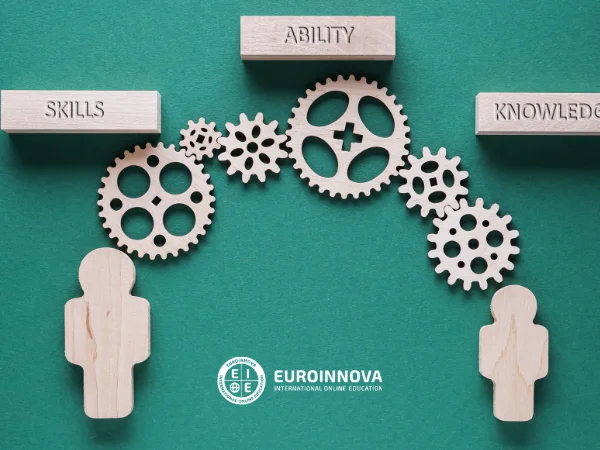Índice
In the current work context, digital skills are identified as the main and essential requirement to consider an employee as competent, but, if we go further, there are other skills or soft skills that are equally valuable and necessary to successfully perform the day’s work. a day. Today, we talk about interpersonal and communication skills. Would you like to know more about them? Continue reading!

Interpersonal skills are a set of skills and abilities that we use to interact, communicate and relate to other people in various social and professional situations. These skills are essential for establishing positive relationships, working as a team, resolving conflicts, and achieving personal and professional goals. Like other competencies and skills, they can be trained and learned to improve them.
There are many social skills that do not manifest themselves in the same way or flow with the same ease in all environments. When we feel confident in ourselves, we are in a family environment or among close friends, it is easier for us to communicate, however, when we are in professional environments, we may have some difficulty, and that is why we must work on the following qualities:
Companies increasingly value a proactive, interactive and communicative attitude, since this facilitates the flow of communication and generates good working relationships that, undoubtedly, directly influence productivity.
If you want to improve your employability and access better job opportunities, look at these tips that we give you:
Practice active listening: Ask a friend or colleague to talk about a topic that interests or worries you. Your goal is to listen carefully without interrupting, ask open-ended questions to understand better what you hear and reflect on it. Then, switch roles and allow your partner to practice active listening with you.
Simulation of social situations: With the help of a friend or a coach, perform simulations of social situations, such as job interviews, negotiations, or difficult conversations. Practice expressing your ideas clearly, maintaining eye contact, and adapting your communication depending on the situation.
Conflict Resolution: Find a conflict or disagreement situation in your daily life and work on resolving it constructively. Practice identifying common interests, negotiating, and finding mutually beneficial solutions.
Feedback: Ask friends, family or colleagues to give you honest feedback about your interpersonal skills. Listen to their feedback and work to improve areas identified as weak points. You can also do the same for them to foster an environment of mutual improvement.
Participation in groups or teams: join a group or team that interests you, whether professional, sports or social. Work collaboratively with others, actively contribute, and see how you relate to different personalities and communication styles.
If you have time you can also read about:

¡Muchas gracias!
Hemos recibido correctamente tus datos. En breve nos pondremos en contacto contigo.